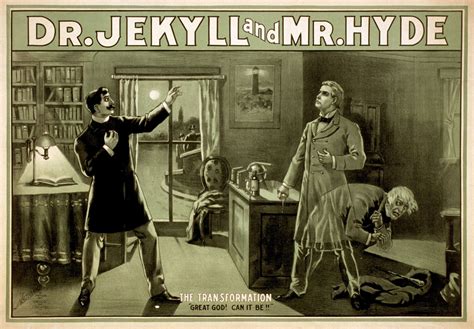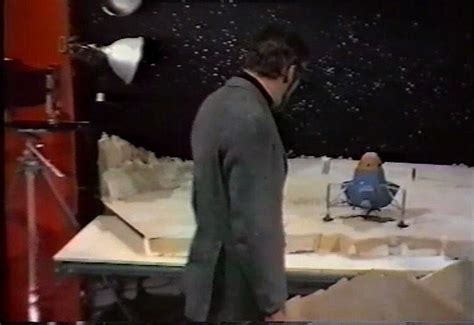A Discourse That Begins With The Intelligence Of Dr Jekyll, Covers The 125 Year Sci-Fi-Psy-Op and Applies The Trivium To The Notion Of Space Travel as Perpetuated by NASA and Mr Musk’s Space X.
In some, if not all, respects, we are players in a great game of Hide and Seek. Last Spring, I released a Rogue Cast in which I posited the view that, whatever this realm may be, we are each of us involved in a game of hiding and finding. Each of us has things we wish to hide, or to keep secret from others. Each of us has a curiosity that sends us seeking answers to questions that have occurred to us.
This simple tenet applies to all things.
‘Seek and Ye Shall Find.’
 In The Strange Case of Dr Jekyll and Mr Hyde, published in 1886, by Robert Louis Stevenson, the narrator states,
In The Strange Case of Dr Jekyll and Mr Hyde, published in 1886, by Robert Louis Stevenson, the narrator states,
“If he be Mr. Hyde” he had thought, “I shall be Mr. Seek.”
Stevenson puts forward the view that each of us exists with the capacity for good and evil,
“With every day, and from both sides of my intelligence, the moral and the intellectual, I thus drew steadily nearer to the truth, by whose partial discovery I have been doomed to such a dreadful shipwreck: that man is not truly one, but truly two.”
 Stevenson writes of a duality of nature that is to be found in each of us,
Stevenson writes of a duality of nature that is to be found in each of us,
“All human beings, as we meet them, are commingled out of good and evil: and Edward Hyde, alone, in the ranks of mankind, was pure evil” ?
What does our intelligence make of this?
Firstly, let’s consider just what intelligence means,
intelligence(n.)
late 14c., “the highest faculty of the mind*, capacity for comprehending general truths;” c. 1400,
“faculty of understanding, comprehension,” from Old French intelligence (12c.) and directly from Latin intelligentia, intellegentia “understanding, knowledge, power of discerning; art, skill, taste,”
from intelligentem (nominative intelligens) “discerning, appreciative,” present participle of intelligere “to understand, comprehend, come to know.”
This is from assimilated form of inter “between” (see inter-) + legere “choose, pick out, read,” from PIE root *leg- (1) “to collect, gather,” with derivatives meaning “to speak (to ‘pick out words’).”
* mind, as I have previously articulated, is non-local.
Given the non-locality of the mind, then intelligence may be defined as the ability to discern truths from the information (Grammar) received by the brain from the Informed Field.
Intelligence is the ‘capacity’ to comprehend ‘general truths’.
The character of Dr Jekyll is personified thus,
“from both sides of my intelligence, the moral and the intellectual, I thus drew steadily nearer to the truth.”
Stevenson is evidently suggesting that intelligence is dualistic – i.e it is only founded in the morality and the intellectual capacity of the individual.
Whilst I acknowledge this is but a work of fiction and that for the purposes of the narrative of Dr Jekyll and Mr Hyde, this is necessary, I do wonder if this precludes the other possibilities of intelligence being intuitive. After all, how often do we find that our first impressions of an individual or a subject turn out to be accurate?
At this point, it may be necessary to remind the reader that I am of the view that what we take to be our thoughts do not emanate from the brain but, rather exist outside us and that our brain is simply download the information.
The conscious individual comes to know that nothing comes from his brain, but that the brain receives his ideas and imaginings from the Informed Field, and that his connection to that is improved by his being conscious of himself as a spirit, sojourneying through this realm inside a bio-avatar that may not even be his.
Stevenson suggests that Jekyll is limited by his individual intelligence and that this may be applied to each and everyone of us;
“All human beings, as we meet them, are commingled out of good and evil: and Edward Hyde, alone, in the ranks of mankind, was pure evil.”
And yet, Stevenson also wrote in Lay Morals that,
“So long as we love we serve; so long as we are loved by others, I would almost say that we are indispensable; and no man is useless while he has a friend.”
And, in Dr Jekyll and Mr Hyde, he shows himself to be well-aware of man’s true nature and his existence in this realm, a construct that is most likely a simulacrum, a copy of another realm,
“I began to perceive more deeply than it has ever yet been stated, the trembling immateriality, the mist-like transience, of this seemingly so solid body in which we walk attired.”
It is also to be noted that Stevenson was unhealthy, much of his life being plagued by an illness that, eventually, resulted in him moving to the South Pacific (Samoa) to alleviate its symptoms. Bouts of ill-health are certainly conducive to a more lucid view of individual existence as a beguiling and convincing dream in which we believe ourselves to be awake.
Largely bedridden, Stevenson described himself as living
“like a weevil in a biscuit.”
Our intelligence is necessarily limited until we apply our common sense to an issue.
Remember, in a mental construct or perceived reality, it is essential that we develop and apply our critical thinking skills to any given matter. If we are confined by an intelligence that only perceives a dichotomy, then we will become just that – an individual who is hampered by the limitations of his intelligence.
All of which is why the Trivium is such a powerful tool for it is one which utilises the individual’s natural proclivity towards elucidating the truth of a matter.
By way of example, let us apply it to consider Elon Musk’s promotion of his Space X narrative and his notion that we can travel through space and colonise Mars within 20-30 years.
- Grammar: the who, what, when and where of the matter.
In order to truly believe in Space existing as a reality, it is necessary to examine the information:
Who has put forward the view that space travel is a possibility?
H. G. Wells – the War of the Worlds, the Time Machine; myriad Sci-Films and books of the last 100 years+.
Spielberg, Stanley Kubrick, Gene Roddenberry (Star Trek), George Lucas (Star Wars), the BBC (Dr Who), any and all Sci-Films and, of course, NASA.
The astronauts – each of whom is a freemason – are also presented to the public as proof space travel is possible.
When did the promotion of Sci-Fi begin?
Over 100 years ago, with H.G. Wells figuring large in its infancy. Since then, it has been rolled out via mass printing of newspapers and books but, arguably more significantly, it has been seeded in the imaginations of the populace by films and TV programmes that portray the fantasy and trick the viewer into accepting it all as possible. The sheer number of Sci-Fi films is taken as evidence of this being a mass thought control programme.
What are they each promoting?
The notion that the stars and planets are real and that we are on a globe (a ball) spinning through the galaxy at great speed.
What do they cite as proof of space travel?
The Cosmonauts of the Soviet Union’s voyages in space with Yuri Gagarin, huge volumes of ‘photographs’, videos of ‘astronauts’ in zero ‘gravity’, footage of space rockets and their purported landings.
To where do the believers claim man has travelled in Space?
The Apollo Moon Landing of 1969 and each of the subsequent ‘missions’ are invariably cited as proof that mankind has landed on the moon. However, a cursory look at the cited ‘proof’ reveals it to be nothing more than cinematic psy-op filmed, most probably, by Stanley Kubrick. The Newsbenders, a BBC film from 1968, reveals such a film set, a year before the ‘landing’ on the lunar surface.

In 2025, we have the continuance of the same fake narrative in the form of Elon Musk’s Space X agency and his claim that mankind will be able to colonise Mars in 20-30 years.
We are also fed the fantasy of The International Space Station, nonsensical footage of Astro-Women with their hair on end to simulate ‘zero gravity’.
NASA publishes only composite images of the ‘globe’, CGIs of the world in which the clouds never shift, dubious photographs of the stars and the planets.

How can the Critical Thinker ignore these anomalies (which are but the tip of the fraudulent and monolithic iceberg)?
By way of an adjunct, in July, 1969, I was 4 1/2 years old. It was an exceptionally sunny day and, with the lounge facing south, the curtains were drawn so that I could see the screen. I remember watching the purported moon landing as it was shown on our black and white TV. Whether or not I was viewing the highlights, I cannot recall. However, I was most definitely unimpressed by it, to the point where I decided it was not worthy of my attention any longer. After all, I would rather be playing outside, so I drew back the curtains, turned off the set and stepped out into the beauty of the day.
Such was my childish take on the Space nonsense. It may not surprise the reader but thereafter, I never had any real or lasting interest in the subject. We went to see the Star Wars film on its release in 1978 but I didn’t bother with any of the subsequent episodes.
2. Logic (reasoning)
How has the Sci-Fi Psy-op been promulgated? By the Dark Cinematic Arts of Film and TV, a programming of a false narrative that begins in the child and bombards him throughout his life.
Why? To keep Mankind distracted and thus ignorant of his true self and the nature of the world in which he appears to live. To sever the divine connection of each spirit to his ultimate creator. To disable and nullify the individual threat to the Freemasonic sorcerers and controllers that would arise were the individual able to break free of the mental shackles that tie him to the dungeon programming (Jason Breshears).
3. Rhetoric.
By way of the falsified Space Narrative, by the seeding and promulgation of the false notion that life is meaningless as we are but carbon based lifeforms spinning on a ball through a galaxy and the relentless propaganda attached to it all, the controllers or mind benders are able to place individual minds into virtual prisons where the walls that contain his mind are invisible.
The Space Narrative has served its scriptwriters and their controllers by effectively placing an imaginary astronaut’s helmet on the head(s) of the deceived. Not only is it a kind of goldfish bowl for his mind but it also works as a shaken snow dome, the particles of which further confuse and obscure his already limited perception of himself and his existence.
Conclusion: in a perceived reality, all is mind. Thus, those who seek to control the profane, the goyim and the infidel, the epithets that the masses are labelled with, use the Space Narrative as an effective means of mind control. Another significant benefit for the would-be controllers is the huge financial opportunities that also accrue via the funnelling of taxes and moneys into NASA and Space X.
__________________________________________________________
Thank you for your kind attention.
Should you be able to support me, please consider chucking a few quid into the pot via the BuyMeACoffee button and/or taking out a paid subscription at my Substack page.


Great post Michael – it is so important that everyone learns how to use their intellect effectively. For example, I was always a bit suspicious of Mr Musk – he just seemed too much like a comic book supervillain, but he seemed to be doing the right thing in a weird way; nothing wrong with that. It was not however until i applied myself to the spinning globe, Darwin and gravity assumptions, leading me to realise the earth was in fact created flat (along with us), that I became so much closer to the creator and realised Elon was another grifter but with a massive intellect.
Will I be getting Starlink? No thanks, I’ve seen Kingsmen 2!
Great comment, John – thank you. It is, as you make clear, the consistent application of our critical thinking skills which leads us to the truth, regardless of the brain-washing we may have been subjected to.
The events of the last 5 years have demonstrated that the biggest morons among us are those who would describe themselves as ‘educated’, which effectively means their ability to repeat the lies and propaganda of that which they have been fed and the space narrative is an example of this. Musk, for all his ‘intellect’ cannot be a critical thinker if he remains blind to the anomalies of the false outer space narrative. Either that, or he is a liar.
The ‘educated’ classes are, in my view, always the most brain-washed. As such, I tend to avoid them!
All the best, Michael
I have thouroughly enjoyed all your posts especially the most recent two, in which you speak of the origins of thought being outside the mind. You speak very beautifully of a world whose nature we do not really know, perhaps only receive of, and that opens far wider and brighter possibilities for how we we use our sensory/biological/psychic being to do experience it and to live of its Love.
Thank you. Be well.
Thank you most kindly, Marianne. It’s a Divine mystery, a great game of hide and seek.